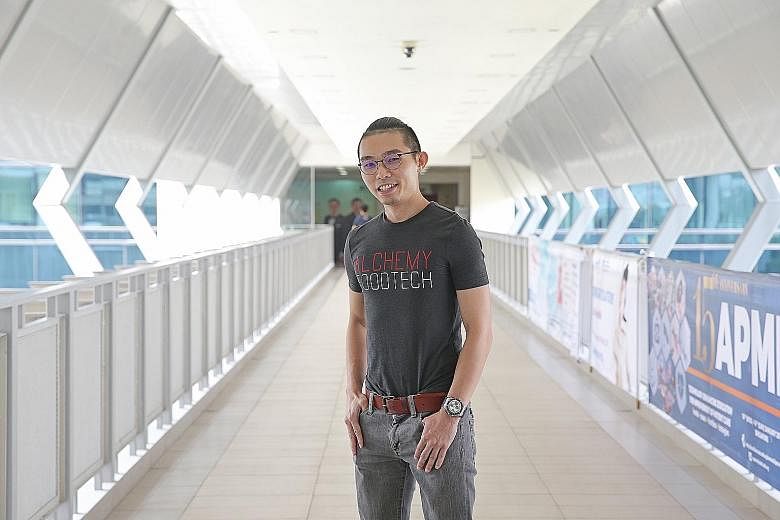Mr Alan Phua, 34, exercises three to five times a week and is religious about his diet.
Looking at his lean frame, nobody would have guessed that the co-founder of a food technology start-up faced a high risk of developing diabetes but has been able to avoid it so far.
Like many others in Singapore, his body does not produce enough insulin, which could cause sugar to build up in the bloodstream. This would lead to a host of accompanying health issues, ranging from fatigue to wounds which do not heal, and infections.
A proper diet and exercise can keep the blood glucose level from increasing to the point when it becomes diabetes.
Local researchers from the National University Hospital (NUH), in collaboration with Janssen Pharmaceuticals, have found that the inability to produce enough insulin could be why Asians are more prone to Type 2 diabetes than their Western counterparts.
The breakthrough finding, based on a study of 140 mostly Chinese participants, will pave the way for better diabetes management for people here and in the region. This includes tailoring dietary advice and a better selection of drugs to treat diabetes, doctors believe.
However, they noted that more participants, and races, will be needed for the results to be applied to the general population.
-
400,000
Number of Singaporeans who are diabetic
-
Want to participate in the study?
Those interested in taking part in the study can contact the research team at brite_spot@nuhs.edu.sg or call 8781-6302 or 8781-6303 or 8781-6306. Participants must fit the following criteria:
• 30 to 70 years old
•No known history of diabetes or other chronic diseases requiring long-term medication
•Normal blood sugar level or pre-diabetic (borderline high blood sugar approaching diabetic range)
•No uncontrolled hypertension (blood pressure more than 160/100mmHg)
•No known allergies to insulin
•Not on regular medication
Samantha Boh
One in three Singaporeans has a lifetime risk of developing the disease. Currently, about 400,000 Singaporeans are diabetic.
According to a previous study, 8 per cent of people of Chinese descent with a Body Mass Index (BMI) of 23 (just outside the healthy weight range) have diabetes. This is four times more than their European counterparts. A BMI of 23 is within the normal weight range for Caucasians.
Said Dr Toh Sue-Anne, principal investigator of the study: "These early findings may suggest that Asians develop diabetes at much lower levels of obesity because they are unable to mount an appropriate insulin response to a glucose load. So it can potentially explain why we seem to see so much of diabetes even if we don't look particularly obese or overweight."
People develop Type 2 diabetes either because the pancreas does not produce enough insulin, or because the body does not respond to insulin effectively (insulin resistance).
Insulin resistance is associated with weight gain - a person becomes more resistant to insulin as he gains more weight.
The preliminary findings are part of Singapore's largest diabetes study which was launched last year. The five-year ongoing study led by NUH has recruited around 1,300 participants, and aims to eventually sign up 2,300 participants.
The study has so far found that insulin resistance between pre-diabetics and healthy volunteers was insignificant. But when it came to producing the hormone insulin, healthy volunteers have a greater ability to secrete insulin than pre-diabetics.
Dr Toh, who is also senior consultant at the NUH division of endocrinology, said it underscored the importance of avoiding food that release high amounts of glucose when broken down by the body, such as those rich in simple carbohydrates which include white rice and sugar.
The findings could also lay the foundation for efforts to test whether therapies that target insulin secretion and the ability to make more insulin could be more effective in the local population, she added.


